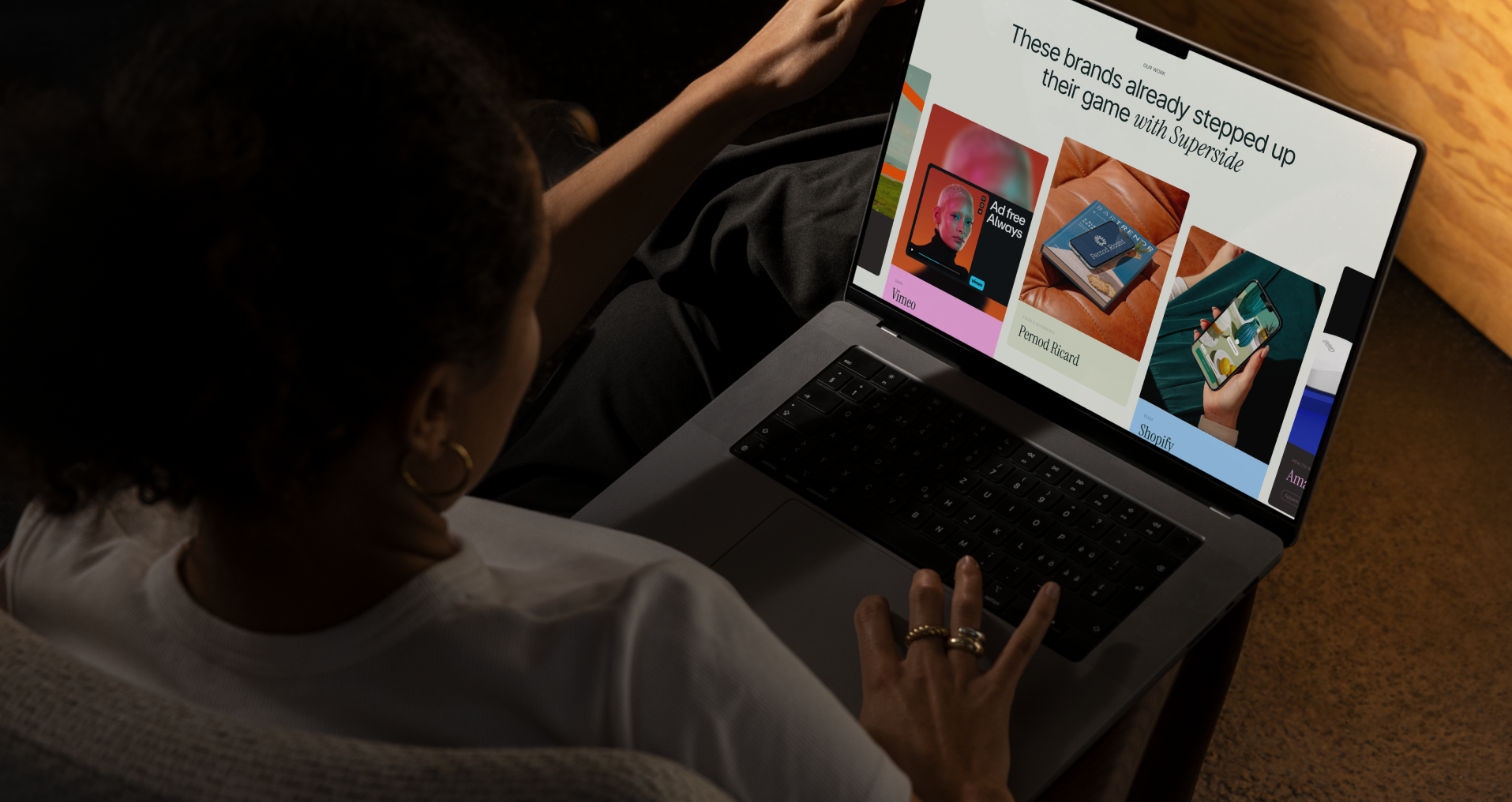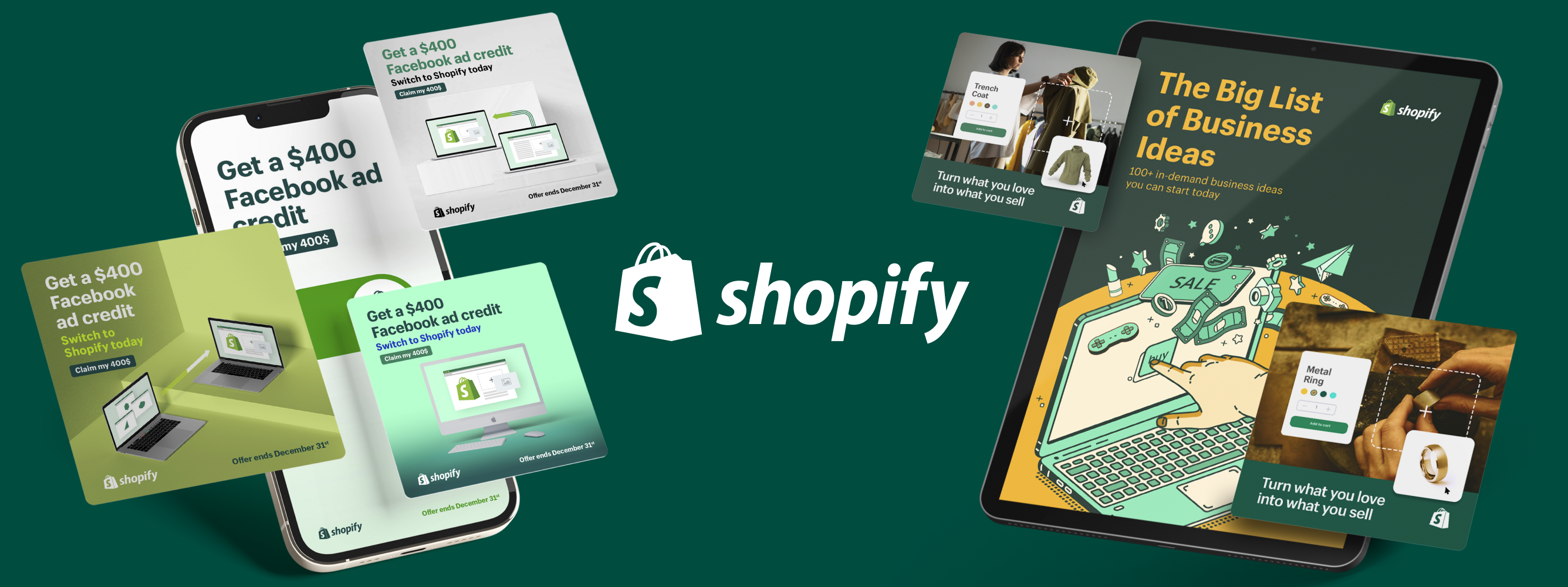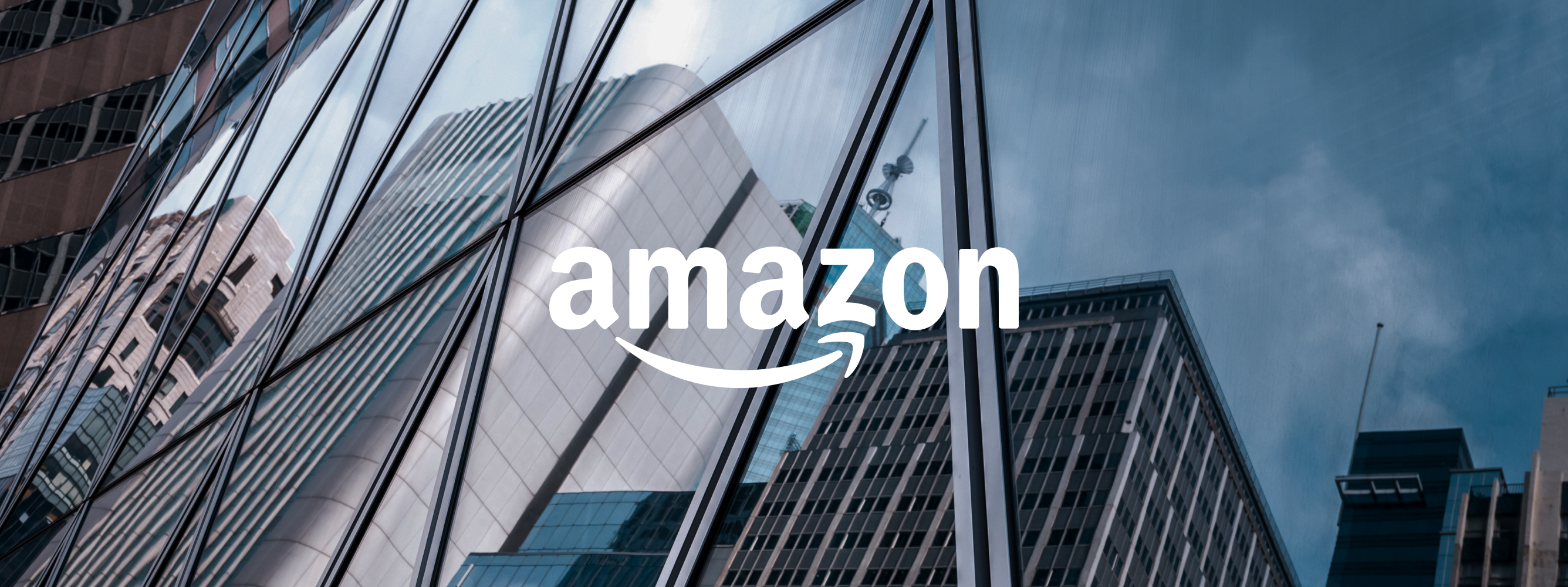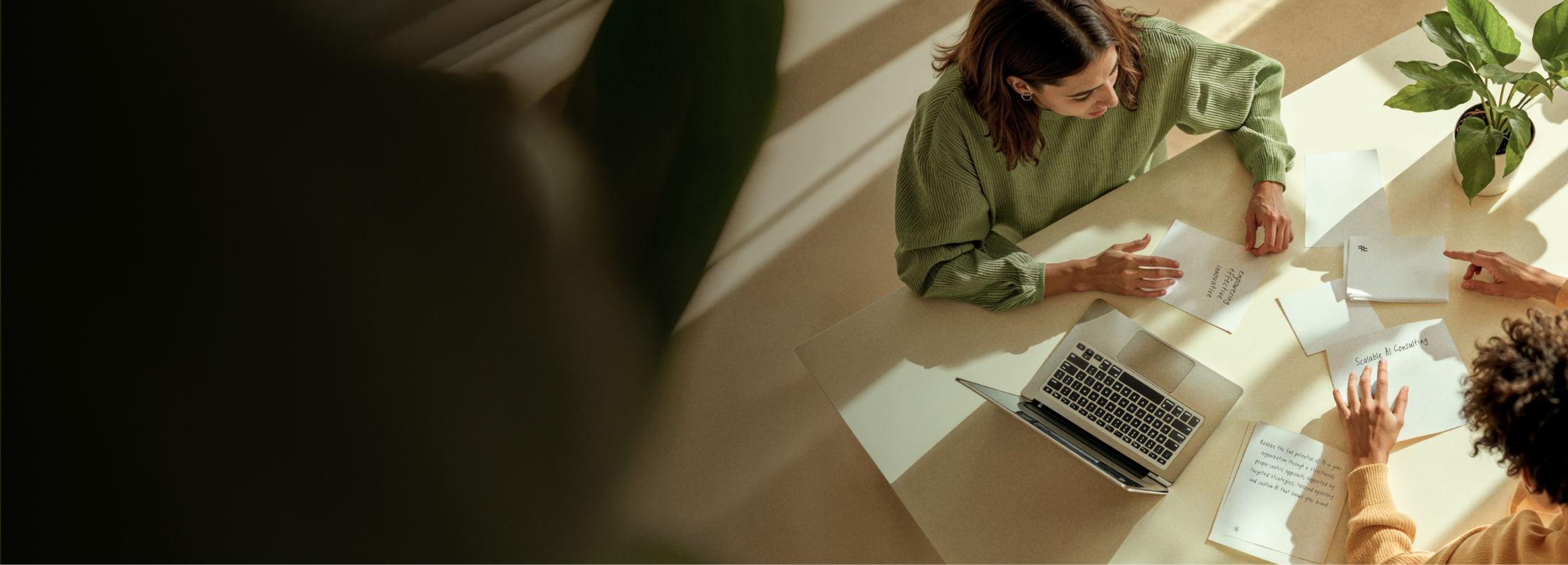
The Case for Out-of-Home Advertising (With 5 Winning Examples)
Published 5 Dec, 2023
Out-of-home (OOH) advertising may seem like an antiquated tactic—but it’s making a comeback. Find out why an OOH campaign may be worth considering, and get inspired to dream up your own winning concept with ROI-rich examples from leading brands like Amazon, Marqeta, Outbrain and more.
What’s in your ad strategy right now? Does a mix of Meta ads, Google ads and influencer marketing sound about right?
If I guessed right, you’re in the majority. Most growth marketing teams focus on a combination of digital channels these days, which means it’s noisy out there. With A+ creative, you can stand out, but you’re necessarily fighting for eyeballs.
But there’s one domain in advertising where the fight isn’t quite as vicious. And another upside? It can be an interesting creative challenge, too.
I’m talking about out-of-home advertising. And I know it works because here at Superside we just ran our own wildly successful out-of-home campaign. More on the results in just a moment. First, let’s get aligned on the basics.
What is Out-of-Home Advertising?
Out-of-home (OOH) advertising is any advertising that’s not on one of your personal devices—instead, you might run into these ads when you leave your home. An OOH campaign targets people on their way to work and back, attending a conference or out running errands.
Think about billboards, public transit ads campaigns and the like.
There was a time when advertisers spent a ton on OOH campaigns, competing fiercely for prime real estate in busy areas. But with digital marketing and paid ads now being the go-to mediums for spending your budget, these more traditional methods have taken a popularity hit.
But should they have? Or do they still have some kick in them? Let’s quickly break down the different types of OOH advertising before we dive into why you should be considering them.
4 Types of Out-of-Home Advertising
Billboards
This is probably the first type of OOH ad that comes to mind. Whether it’s a billboard by the highway, by the train station or downtown, this is the OOH advertising medium everyone’s run into (hopefully not literally).
Digital displays
They’re the billboards of the future—or at least the very recent past. You’ll find them at gas pumps, in the self-checkout lane, and of course, Times Square. Digital displays are great for those selling the ad space, since they can sell more of it, but they also allow you to get a lot more creative.
Transit ads
Those ads you see on or inside public transit? They’re OOH campaigns. Thousands of commuters see them every day. Think of the reach they must get.
Any other IRL campaign
While billboards, displays and transit ads are some of the most popular types of OOH advertising, they’re far from the only ones. In fact, since any ad you encounter out in the world is technically OOH advertising, there are just too many to list here. Amazon, for example, recently launched a campaign with fun slogans on its vans and trucks.
Now that you know what these ads look like, let’s delve into why they’re still worth investing in.
Benefits of Out-of-Home Advertising
You’d be forgiven for thinking a blog post from a design subscription service would rag on OOH advertising in favor of newer methods. Forgiven, but wrong! Despite their reputation as an outdated strategy, OOH campaigns have some serious upsides.
Better reach
Which ad do you think will have better reach? A Facebook ad you launch onto people’s feeds with limited knowledge of who Meta will show it to? Or a massive billboard next to the biggest public transit station in your city?
OOH advertising can reach a wider audience over a longer period of time—as long as it’s well-placed.
Need proof? As I mentioned, we recently launched a multi-medium OOH advertising in San Francisco with billboards, coffee trucks and just about every other available inch of real estate we could find. The result? A 140% increase in call requests from California and 77% more direct traffic.
Better recall
If I asked you to describe five ads you saw in your social feeds today, would you be able to? Probably not, right? Unless they’re really creative or perfectly targeted, most digital ads just become yet another thing to ignore on your feed. Your audience will barely notice them, let alone remember them.
OOH advertising has an advantage here. First, it’s not competing with a constant stream of digital entertainment. Second, these ads are physically bigger—paired with bold colors and a creative tagline, and you’re much more likely to catch people’s attention out in the world.
Take Superside’s campaign, for instance. We put out multiple types of ads and billboards, like this one:
We were especially proud of the cheeky tagline. But we were even prouder of getting a call from a potential client who saw it. That’s recall.
Competitive ROI
There was a time when social media and Google ads had the best return on investment (ROI) around. The market was young, and marketers who got in early reaped the rewards. But as demand for these ads grew—and privacy laws strengthened—the costs went up and the benefits went down.
In a way, we’ve come full circle. Now, OOH advertising is back to yielding worthwhile returns, so don’t ignore this strategy just because it’s old school. The ROI on this type of advertising may be even higher, depending what industry you’re in. (Looking at you tech!)
Immune to the cookie-pocalypse
Anyone currently working in digital advertising and marketing is bracing for the impending cookie-pocalypse, that climactic event when the third-party cookie disappears forever. It’s going to affect Google ads, social media advertising and a whole lot of other tactics.
You know what it won’t affect?
OOH advertising. So if you’re worried about the death of the third-party cookie, now might be the time to consider this approach.
5 Examples of Out-of-Home Advertising
1. Superside’s OOH campaign
Since billboard design is a service we provide to lots of clients, we wanted to make a splash with this. And we wanted to do it in a way that everyone else trying to advertise to big tech wouldn’t see coming.
So this past summer, we went all-in on a big OOH campaign in San Francisco, strategically planning it to coincide with two major conferences: SaaStr and Dreamforce.
We’ve always toyed around with the idea of testing an out-of-home campaign, but we didn't decide to pull the trigger until we could link it to something that made sense for such a costly initiative.

We used this campaign to test out lots of things, from OOH advertising itself to a distributed live photoshoot and even using our external-facing creative team as if we were our own clients.
So how did we do?
140% more calls. 77% increase in direct traffic. 47% more organic search traffic.
That’s what we’d call a successful experiment!
2. Marqeta’s OOH campaign
When it comes to OOH advertising, is there a better spot than Times Square?
Let us know if you find one.
For Marqeta’s campaign, nothing but killer creative would do. They needed visuals that quickly communicated what their whole business was about in seconds—and they had to stand out from all the other billboards in the Big Apple.
This campaign did both.
3. Outbrain’s OOH campaign
If there’s one thing better than being in Times Square, it’s taking it over.
Back in July of 2021, Outbrain went public, and they wanted to celebrate in a big way.
With Superside’s help, Outbrain launched a campaign with synchronized ads that took over seven of the most iconic spots in Times Square, including the NASDAQ Market Site digital billboard.
The key to this campaign? It fit the company perfectly. Outbrain powers discovery feeds across platforms and places ads. So, what better way to advertise themselves than to take over Times Square?
4. Amazon’s OOH campaign
You wouldn’t think Amazon needs to do much advertising. After all, they’ve completely dominated retail, given Netflix a run for their money, and they have one of the most profitable cloud computing services businesses in the world.
And yet.
In this recent campaign, Amazon covered trucks and vans in fun slogans in a sort of roving OOH campaign. When you think about it, it’s kind of genius. Amazon’s constantly delivering a ton of products, so why not take the opportunity to remind everyone else that they could be waiting on an Amazon package right now?
5. Notion’s campaign
This award-winning campaign put Notion on the map—literally. The company wanted to increase global awareness of its productivity app, and it used a medium that isn’t usually too popular in tech. The key to this one? A killer concept that could only work for them.
Notion has a dedicated community of power users—people who use the tool for just about everything. By sourcing stories from their community, Notion was able to tap into the human side of their best fit customers, creating a campaign that really resonated.
The result?
Just an award-winning campaign with 1.5 billion impressions. No big deal.
Add Out-of-Home Advertising to Your Marketing Strategy
Out-of-home advertising isn’t the dinosaur you thought it was. Pair killer creative with the right strategy and your campaign can make a huge splash.
Our own campaign is proof of that.
Before you launch your OOH campaign, just make sure you have a great concept that can be communicated in a few seconds, pair it with great visuals and pick the perfect spot. I bet you’ll be surprised by what you can achieve.














